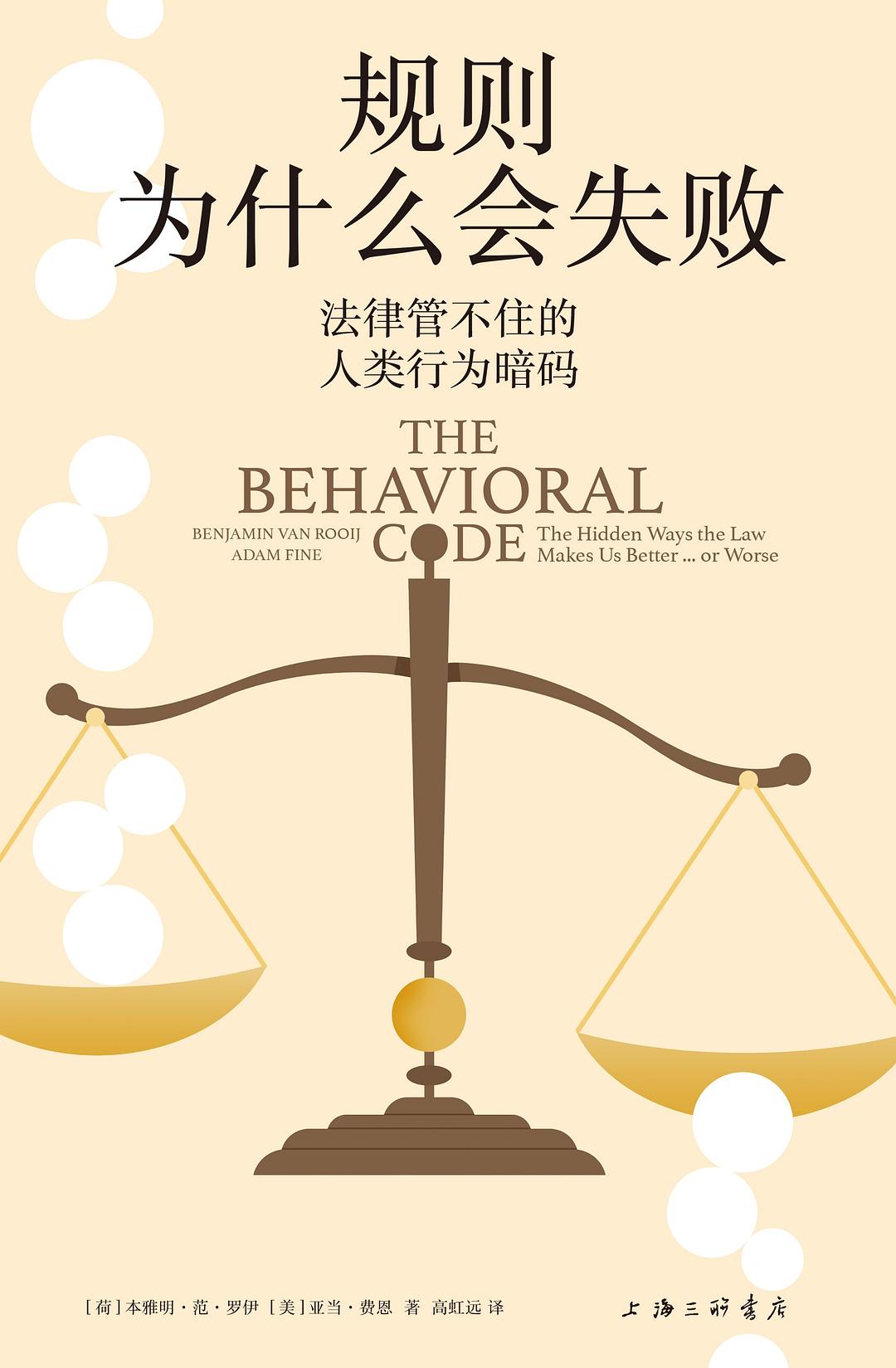WULOLIFE
《规则为什么会失败》作者: [荷]本雅明·范·罗伊 / [美]亚当·费恩 出版社: 上海三联书店
《规则为什么会失败》作者: [荷]本雅明·范·罗伊 / [美]亚当·费恩 出版社: 上海三联书店
Couldn't load pickup availability
Description
内容简介 · · · · · ·
探讨行为规则的“魔鬼经济学”
获美国心理学法学协会及美国律师协会奖项
法学、经济学、社会学、心理学等众多领域专家一致推荐
*内容简介*
为何系安全带的法规执行良好,而限速规定屡遭突破?竖立”签名位置更能影响填表人的诚信?机构的安全手册、合规条款和内部举报机制为何形同虚怎样才能避免一厢情愿甚至事与愿违?
失败的规则单有处罚,却不提升安全、产量、环保效果、群体认同……依规律定规则,才是讲科学。人类行为有怎样的客观规律?阅读本书,发现答案。
*作品看点*
以法律为例,启迪各种组织规则的设定和执行
公司管理层常用“扣钱”的手段去提振公司效率,克服员工迟到、工作量不达标等问题。警示、手段固然符合管理者的直觉,但透过本书我们会看到,从法律到幼儿园、公园等共场所的管理规定,此类手段经常失效甚至适得其反。那么变罚为奖是不是更好?也不是这么简单……从中,规则制定者能看到自身的盲点,而规则的被动接受者也可以更为顺应科学规律地趋利避害。
多门社会科学的综合演练
本书综合心理学、经济学、社会学、法学等众多社科研究,指出人类行为的潜藏客观规律,及如何合理利用心理启动,顺应从众效应、不成文社会规范、道德感,综合考虑人们守法和违法的损益等。透过本书,读者可一览在一众社会科学领域中共通的科学思维及实证方法。
丰富案例,有说服力
本书的案例覆盖欧洲、南北美洲、东亚多个国家的刑法、税法、治安法、环保法、交通法规,以及保险政策、公司合规制度、机构安全准则、公园和地铁的规定、公益广告等规则及推行规则的活动中形成的吊诡局面和改善策略及其效果,足可给读者多角度的启发。
*媒体/名人推荐*
现行的法律体制中存在深刻的不公。如何大幅增进其公正性?本书为这一问题指出了一条明路。——劳伦斯·莱西格(哈佛法学院罗伊·富尔曼讲席教授)
本书内容环环相扣,循序渐进,引人入胜。但对我来说,最有价值的是,它在政策制定问题上充分展示了社会科学的威力。通过本书,我们发现,经济学所推崇的严谨的逻辑推理、严密的因果关系识别,在政策的评估和制定过程中都非常重要。缺乏这些而错误的恶果。—— 聂辉华(中国人民大学经济学院特聘教授)
20%90%了一些缝隙。不断有新潮学者利用实验方法挑战新古典经济学的经典“理性经济人”假设,逐渐形成一股潮流……本书正是在这种传统经济学已经失败、新兴经济学尚未完全成型的背景下写作的。在两位作者讨论的诸多例中,不仅规则失败了,传统的“法的经济分析”也失败了,这种双重失败,只有新兴的行为经济学才能挽救。——梁捷(上海财经大学副教授)
